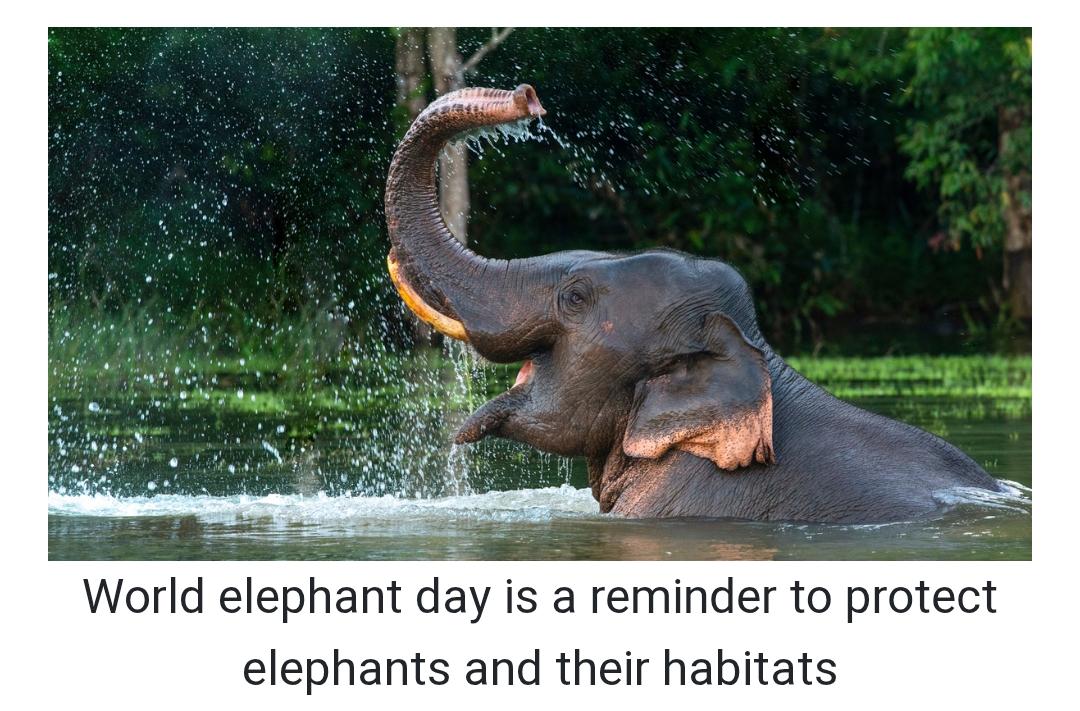World Elephant Day, observed annually on August 12th, serves as a poignant reminder of the majestic elephant's importance and the escalating threats it faces. Far from being a mere calendar event, this day represents a global movement aimed at raising awareness, fostering education, and inspiring action to safeguard these gentle giants and their habitats for future generations.
Elephants, both African and Asian, are recognized as keystone species due to their profound impact on their ecosystems. They act as "ecosystem engineers" by:
Shaping landscapes: By knocking down trees and clearing paths through dense vegetation, they create openings that allow sunlight to reach the forest floor, promoting the growth of new plants and smaller animals.
Dispensing seeds: As they travel vast distances, their dung disperses seeds, contributing to forest regeneration and biodiversity.
Creating water sources: During droughts, elephants dig water holes, providing vital resources for themselves and other wildlife.
Enriching soil: Elephant dung enriches soil nutrients, supporting vegetation that sustains numerous other species.
Beyond their ecological significance, elephants hold a special place in human cultures. In India, they are revered as symbols of wisdom, power, and fortune, associated with religious traditions and festivals. In other cultures, they symbolize strength and leadership, highlighting the profound cultural connection between humans and elephants.
However, these magnificent creatures are facing immense challenges threatening their survival:
Poaching for ivory: The illegal ivory trade remains a significant threat, driving the decline of elephant populations across Africa and Asia.
Habitat loss and fragmentation: Expanding human settlements, agriculture, and infrastructure projects, such as roads, railways, and mines, encroach upon elephant habitats, restricting their movement and increasing human-elephant conflict.
Human-elephant conflict: As their habitats shrink, elephants increasingly encounter humans, leading to crop damage, property destruction, and sometimes fatal retaliatory killings on both sides.
Mistreatment in captivity: Some elephants are exploited for tourism and entertainment, enduring harsh conditions and cruel training practices.
World Elephant Day serves as a crucial platform to address these threats and promote positive solutions. It encourages:
Policy change: The day galvanizes support for stricter laws and enforcement to combat poaching and habitat destruction.
Conservation efforts: It highlights successful initiatives like Project Elephant in India, which focuses on habitat protection, conflict mitigation, and anti-poaching measures, according to Drishti IAS.
Community engagement: Initiatives like Gaj Yatra involve local communities in conservation efforts, fostering peaceful coexistence between humans and elephants.
Ethical tourism: The day promotes responsible tourism practices that prioritize elephant welfare and avoid exploitative activities like rides and shows.
Public awareness: Through educational campaigns and events, World Elephant Day raises awareness about the elephant's ecological and cultural importance, urging individuals to support conservation efforts through donations, volunteering, and advocacy.
World Elephant Day is not merely about celebrating elephants; it is a global rallying cry for their survival. By uniting individuals, organizations, and governments, this day provides a beacon of hope for these magnificent creatures, ensuring that their trumpeting calls continue to echo through the forests and grasslands for generations to come.

